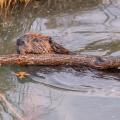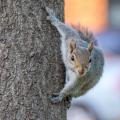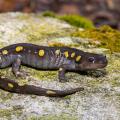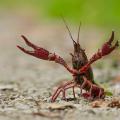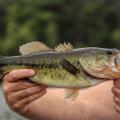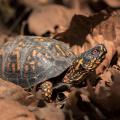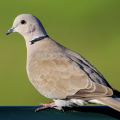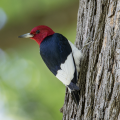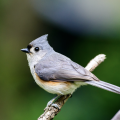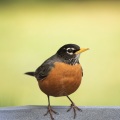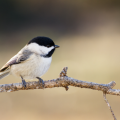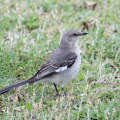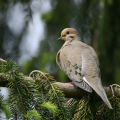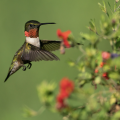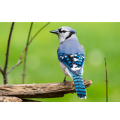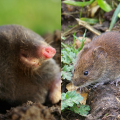News By Department: Wildlife, Fisheries & Aquaculture
Have you ever been on a walk in the woods, park, or backyard and noticed animal tracks in the mud or dirt? Some tracks are easy to identify, while others are a bit harder to tell which animal they belong to.
Little green climbing machine —the Carolina anole, known as Anolis carolinensis, is often called the American chameleon for its ability to change color.
Have you ever been on a walk in the woods, park, or backyard and noticed animal tracks in the mud or dirt? Some tracks are easy to identify, while others are a bit harder to tell which animal they belong to. It’s a fun guessing game trying to figure out which animal has been visiting nearby.
The yellow-spotted salamander is a slippery, shiny Mississippi amphibian. Also known as Ambystoma maculatum, this is a large amphibian, measuring between six to nine inches!
Have you ever been on a walk in the woods, park, or backyard and noticed animal tracks in the mud or dirt? Some tracks are easy to identify, while others are a bit harder to tell which animal they belong to.
The Louisiana Red Crayfish goes by many names. Whether you call it a red swamp crawfish, Louisiana crawfish, Louisiana mudbug, or a crawdad, Procambarus clarkia is a striking invertebrate!
RAYMOND, Miss. -- Frustration is mounting for deer hunters across Mississippi whose cool-season food plots died or never got planted because of drought conditions. Although it’s November, hunters still have time to replant.
Fishing is a common pastime in the South. In fact, 4-H fishing clubs are one of the fastest growing 4-H clubs in Mississippi! Do you know the different fish species?
We’ve reached the end of our yearlong series that introduced you to some of Mississippi’s birds! We hope these blog posts have helped you identify and learn more about our feathered friends.
Many birds aren’t as easy to identify as red-headed woodpeckers. With their bright red head and neck feathers and loud pecking noise, they surely know how to make their presence known!
The tufted titmouse is a bird you’ve likely seen in parks, woodlands, and in your back yard. They’re native to the eastern parts of the United States and are attracted to areas where there is an abundance of broadleaf trees, such as oaks, hickories, and maples.
“Rockin’ robin, tweet-tweedle-lee-dee!” You sang that sentence as you read it, didn’t you?
If you hear a bird call that sounds like a fast, high pitched “chick-a-dee-dee-dee,” you can confidently say it’s coming from a Carolina chickadee– they get their name from this distinctive call.
Every Mississippian is familiar with the northern mockingbird. In 1944, it became the official bird of Mississippi.
“Coo-OO-oo-woo!” With their rather sorrowful call, the mourning dove sings one of the most recognizable songs.
Have you ever noticed the small birds hopping around parking lots scrounging for food and wondered what kind they were? There’s a good chance they were house sparrows.
Everyone loves Ruby-throated hummingbirds! I have fond memories of watching these hummingbirds visit the many feeders my grandparents put out each year. You probably have a similar story! Hummingbirds are fascinating creatures, with their bold-colored feathers and fast-fluttering wings.
Blue jays are easy to recognize by both their noisy call and bold blue feathers. Also known as jaybirds, blue jays are members of the crow family and native to the United States.
Moles and voles are often confused with one another. They both can cause damage to your lawn and their names sound very similar. You can use the beginning letter of their name to help you remember the difference!

